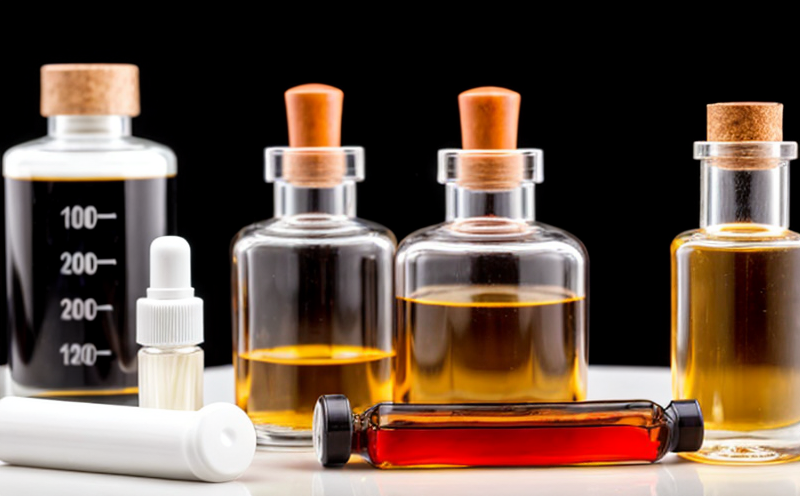JIS T3211 Chemical Safety Testing of Pharma Materials
The JIS T3211 standard is a critical component in ensuring the chemical safety and quality control of pharmaceutical materials used in Japan. This stringent guideline, established by the Japanese Industrial Standards Committee (JISC), aims to protect consumers from potentially harmful substances that may be present in pharmaceutical products.
Pharmaceutical companies are required to adhere to this standard when manufacturing or importing medications into Japan. Failure to comply can result in significant legal and financial consequences, including product recalls and potential market withdrawal.
The testing process under JIS T3211 involves a comprehensive series of analyses designed to identify the presence of any harmful chemicals that could adversely affect human health. This includes heavy metals like lead, mercury, and arsenic, as well as other potentially hazardous compounds such as benzene derivatives and polycyclic aromatic hydrocarbons (PAHs).
Pharmaceutical manufacturers must ensure their products meet stringent purity requirements to prevent contamination from these harmful substances. The testing process typically begins with the collection of samples from various stages of production, including raw materials, intermediates, and final products.
The laboratory uses advanced analytical techniques such as inductively coupled plasma mass spectrometry (ICP-MS), gas chromatography-mass spectrometry (GC-MS), and liquid chromatography-tandem mass spectrometry (LC-MS/MS) to detect trace levels of contaminants. These sophisticated instruments provide highly accurate results, which are essential for ensuring compliance with JIS T3211.
In addition to heavy metals and PAHs, the testing protocol also screens for other potential hazards such as dioxins, furans, and chlorophenols. The presence of these compounds can indicate contamination from various sources, including environmental factors or manufacturing processes. By adhering to JIS T3211 standards, pharmaceutical companies can minimize risks associated with these contaminants.
The testing process is not limited to chemical analysis; it also includes assessing the overall quality and purity of the pharmaceutical materials. This ensures that the products meet both regulatory and customer expectations. The laboratory provides detailed reports outlining the test results, including any detected contaminants and their concentrations. These reports serve as crucial documentation for compliance purposes.
Compliance with JIS T3211 is essential not only in Japan but also globally due to its high standards of chemical safety. Many international pharmaceutical companies rely on this standard to ensure consistent quality across their global operations. By adhering to these stringent guidelines, manufacturers can build trust and maintain a positive reputation in the market.
Understanding the nuances of JIS T3211 is crucial for those involved in the pharmaceutical industry. This includes quality managers, compliance officers, R&D engineers, and procurement specialists who play key roles in ensuring product safety and regulatory compliance.
Benefits
The primary benefit of adhering to JIS T3211 is the assurance of chemical safety in pharmaceutical materials. This standard helps protect consumers from potentially harmful substances that could lead to adverse health effects. By ensuring strict adherence to this guideline, manufacturers can mitigate risks and maintain a high level of product quality.
Compliance with JIS T3211 also provides a competitive advantage by demonstrating a commitment to excellence in manufacturing processes. This can enhance brand reputation and customer trust, ultimately leading to increased market share and customer satisfaction.
The standard fosters international collaboration among pharmaceutical companies operating within the Japanese market. By adhering to this stringent guideline, manufacturers can ensure seamless integration with global supply chains and regulatory frameworks.
Moreover, compliance with JIS T3211 helps mitigate potential legal risks associated with non-compliance. The laboratory’s expertise in chemical safety testing ensures that pharmaceutical products meet all necessary regulatory requirements, thereby protecting against costly recalls or market withdrawals.
Industry Applications
- Pharma Manufacturing: Ensures the purity and safety of raw materials used in drug formulations.
- R&D: Provides data for identifying and eliminating potential contaminants during product development.
- Supply Chain Management: Facilitates seamless integration with global supply chains that adhere to international standards.
- Quality Control: Offers comprehensive testing of pharmaceutical materials at various stages of production.
International Acceptance and Recognition
The JIS T3211 standard is widely recognized and accepted globally, particularly in regions where stringent chemical safety regulations are paramount. Its acceptance extends beyond Japan to countries that value high standards of pharmaceutical manufacturing.
The laboratory’s expertise in JIS T3211 testing ensures compliance with international guidelines such as ISO 9001 for quality management systems and ICH Q7A for Good Manufacturing Practice (GMP). These certifications further enhance the reliability and consistency of our testing services, making them suitable for pharmaceutical companies operating internationally.
International recognition of JIS T3211 is crucial in maintaining global trade relationships. By adhering to this standard, manufacturers can ensure that their products meet regulatory requirements across different markets, thereby facilitating smoother international transactions.





